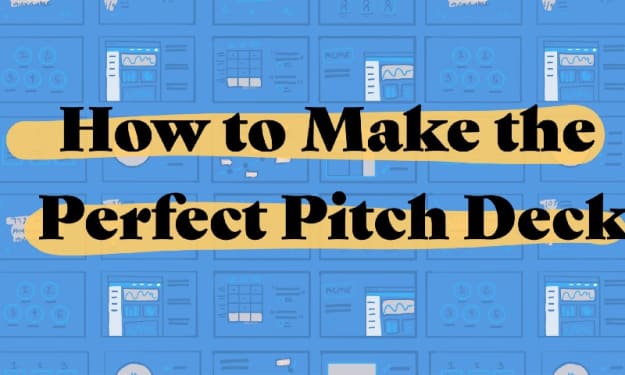
The e-commerce sector is rapidly expanding. Currently closed one-stop stores might never revive. Many individuals are eager to learn how to establish an e-commerce business. If you intend to earn fast profits, that's what you'll do. Instead, you must strive to create a stable, expandable business. An investment that adds genuine value to the industry calls for a long-lasting vision to be formed. For you to fully comprehend every detail you need to kick-start your e-commerce business. From necessary paperwork to ecommerce website development and marketing online, we have broken it down into a few simple stages. Let’s help you embark on your e-commerce journey.
Stage 1: Explore The E-Commerce Sector And Identify your Field.
The initial step in determining how to establish an e-commerce business is to do thorough research. You must study the e-commerce sector you find intriguing and make certain choices regarding your distinct business. You must think about the particular services and items that your business is going to deliver. What your offering will be? Where are you going to buy your commodities from? What kind of ecommerce website development will you require? Which local or international SEO agency will you hire to rank your website? In addition to this, you must make a business plan to decide how are you going to sell your offerings.
The e-commerce market is expanding guessing by the amount of website ranking jobs every local and international SEO agency is busy handling, which is exciting for individuals who want to discover how to establish an e-commerce business but also means there will be more competitiveness. You should conduct a competitive analysis and identify a market where you believe you can successfully build your brand through ecommerce website development and make sales of goods and services.
Stage 2: Decide A Legal Structure And A Business Name.
The next stage is to decide on a name for your e-commerce business after you've finalized your plan. You must select a distinct title while also describing your business. You can conduct competitor analysis of other e-commerce businesses or even seek advice from an international SEO agency. To make sure that the business name you choose isn't already registered by another business, you should probably check the websites of the Patent and Trademark Office and your local secretary of state as well as domain names from ecommerce website development service providers. Now, decide on the legal nature of your business. Your choice of business entity will have significant legal and financial effects on your e-commerce business. Often, you'll decide whether to form a company, LLC, partnership, or sole proprietorship. Each of these business kinds has advantages and disadvantages, so you could choose to get legal counsel from an attorney or other legal expert to determine which is ideal for your business.
Stage 3: Obtain an Employer Identification Number.
The next stage is to submit an application for your business's employer identification number (EIN). While not all business enterprises are required to acquire an EIN, possessing these 9 numbers might help you discriminate across your private and business funds. You can apply for a valid EIN via mail, phone, or fax.
Stage 4: Receive Licenses And Permits For Your Business.
You should now apply for any business licenses or permits necessary to run legally state after acquiring your EIN. However, you don't need it in the case of sole proprietorship or partnership. For the other sorts of business entities, you must register your company with your state and acquire a standard license to operate. You might also need to obtain a regional operating license, based on where your business is situated. There are some additional licenses that you might require like professional and trade licenses for certain industries, sales tax permits, health, safety, and environmental permits, signage permits, and building and construction permits.
Stage 5: Develop Your Website.
Up to this point, most of our actions have been similar to initiating a traditional brick-and-mortar business. Presently, however, you'll start fabricating your site and online store instead of searching for a space and preparing to set up your actual store. Similar to a real storefront, this website will serve as the public face of your business. It is where visitors will first go to learn more about your offerings before making a purchase. In light of this, starting with your ecommerce website development will be among the most crucial steps in launching an e-commerce business.
Even though there are hundreds of these ecommerce website development platforms on the market, you may want to start with one of the well-liked options such as Shopify, WooCommerce, Squarespace, or Magento. After development what your e-commerce website requires is online exposure, which is only attainable through professional SEO services with the help of any local or international SEO agency you find suitable based on your business objectives.
Stage 6: Create a Product Catalog.
After you've chosen an e-commerce solution and deployed your site, consider it almost done. You must now locate the genuine suppliers of the items you plan on selling. As you carried out your research in stage one, you must have thought about how to get through this process. If you offer services, like consulting, you simply need to specify and deliver these offerings on your business's main website. Additionally, you might create your items or purchase them from suppliers.
Stage 7: Advertise Your E-Commerce Business.
Now that you have your goods and services displayed on your e-catalog, and your website is all set and going live. You need to start marketing your business online to attract web traffic and transform them into paying customers. Hire a marketing agency, or plan your marketing strategies on your own, integrate SEO to your website, the digital marketing is just flooding with all the new-age marketing techniques you can use. You might consider hiring an international SEO agency to market your newly established business on a global level.
Concluding Thoughts
Starting an e-commerce business instead of a physical one has numerous advantages, including lower initial investments, the capability to initiate on a small or large scale, and the skill to satisfy customers from all over the nation or worldwide with the help of an international SEO agency providing exposure on search engines. Starting with an ecommerce website development makes sense for ambitious business owners because it's considerably simpler and less expensive to expand if necessary.
Therefore, if you want your business to become a success story, there are crucial measures to take and expenditures to make. Handle your e-commerce website like any other business by adhering to tax regulations, obtaining the required licenses, investing in client retention, communication, hiring an international SEO agency that is professional, and platform development that is mobile-friendly and you are good to go.






Comments
There are no comments for this story
Be the first to respond and start the conversation.